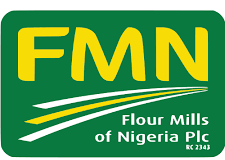Governor Hope Uzodinma, Godwin Emefiele In Trouble Over Alleged N52 Billion Investment
OpenLife Nigeria has gathered that Imo state governor, Senator Hope Uzodinma and the Governor, Central Bank of Nigeria, Mr. Godwin Emefiele, may be in for a big trouble over an investment of about N52 billion in Adapalm.
In an attempt to revamp Adapalm, reputed to be Imo State goldmine, Governor Hope Uzodimma embarked on a mission to turn around the company and bring it back to productivity and profit.
Former Governor Emeka Ihedioha reportedly attempted to inject new life into the facility but his administration was short-lived and didn’t achieve much.
According to Governor Uzodimma, his government is committed to bringing back the company to help the state survive the global economic downturn caused by the coronavirus pandemic. “We have to look inwards to see how best we can restructure our economy, boost IGR strength and then ensure that our citizenry is also busy,” declared the Governor.
He said Adapalm, in its rightful place, would raise the internally generated revenue of the state, and the company on its own as a value chain can produce not only palm oil but also other oil-related products like margarine, Shea butter, and palm kernel oil, among others.
He stated that the government was keen on expanding the company because of the potential 35,000 jobs that could be created, explaining that the state could earn about N3 billion turnover, once the firm was fully revived.
Following the resolution of the issues that held the company down, the company was ready to start full production.
The company reportedly is engaging some 120 workers to kick start production.
A tripartite agreement, which Governor Uzodimma has approved, has been signed between the core investor Roche, Government and the host community, to make it part-owner of the company.
Along the line, the Central Bank of Nigeria (CBN) reportedly expressed interest in transforming the mill so that it could take palm nuts from other smallholder farms. The CBN Governor, Godwin Emefiele had said that the bank has committed about N30 billion to enhance oil-palm production in the country from which Adapalm is expected to benefit.
Government has reportedly commenced discussions with the CBN for a loan of N52 billion to be channeled into the Adapalm plantation. That would greatly leverage the company towards realising its aim of creating a palm plantation hub in Nigeria.
It is projected that the state would realise at least N15 billion annually if all the machines were in good condition and operated optimally: “Imo may soon no longer depend on federal allocation. If things go normal, we can make N500 million in a month and about N15 billion in a year. With this, we can take care of so many capital projects and improve the economy of the state,” Imo government envisaged.
However, in the face of the elaborate plans, a federal high court sitting in Lagos has ordered eight commercial banks in Nigeria to unconditionally substitute the names of existing signatories of a Limited liability company Adapalm Nigeria Limited in eleven accounts domicile in the said banks respectively with the name of it’s receiver/ manager Chief Philip Ndubusi Umeh SAN.
The presiding Judge,Yelling Bogoro,also made an order restraining, Adapalm Company Nigeria Limited wether by itself or through its agent or privies or any erstwhile Director(s) of the company from opening or operating any account in any bank in Nigeria whatsoever with the name of Adapalm company during the subsistence of the appointment of Philip Ndubusi Umeh SAN as the Receiver/manager of the company.
The order of the court was as a result of an application filed before the court, by Chief Ndubusi Umeh SAN urging the court to grant the afore-stated order, on the ground that by order of a court he has been appointed as the Receiver/Manager over the assets of Adapalm Nigeria Company Limited by Bank of Agriculture.
Adapalm was alleged to be indebted to Bank of Agriculture between 16th, December,1976 and 22nd December,2989 to the tune of N2,655,616,916.17 and the company had failed and neglected to pay it’s debt.
The history of Adapalm captures an impressive reminder of what the defunct Eastern Region set out to achieve under a federal system, which Nigeria started with.
It was on that ground that the Eastern Nigeria government under the colonial administration of Dr. Michael Okpara established the Ohaji Palm Settlement in 1953. Dr. Okpara, notably, established several farm settlements in different parts of Eastern region that provided the bull work for economic development.
Adapalm occupies an area of 4,310 hectares of oil palm plantation planted between 1975 and 1978, while another 20 hectares were planted in 1995.
The main products of the company are Special Palm Oil (SPO) and palm kernel. The products expected from the value chain include vegetable oil, laundry soap, glycerin, palm kernel cake and oil.
The aim of the company was the development and management of oil palm plantations and their allied products; the mechanical processing of fresh fruit bunches at its mills complex at Ohaji.
Adapalm was later acquired by the Agricultural Development Authority Palm, from which the name AdaPalm was derived. The contributions of palm produce to the economy of the Eastern region are well documented and cannot be overemphasised. The outbreak of the Nigeria civil war truncated the operations of Adapalm.
Adapalm Nigeria Limited was incorporated on the 9th of May 1975, five years after the end of the civil war under the East Central State Government. With the splitting of East Central State in 1976 into two states, namely Imo and Anambra, Adapalm was ceded to Imo State under the control of the Ministry of Agriculture and Natural Resources, Owerri.
In 1983, the first civilian governor, Chief Sam Mbakwe revived Adapalm. At the initial stage, the plantation had over 800 employees while the company was making annual sales estimated at over N1 billion. With the abrupt exit of the Mbakwe administration on December 31, 1983, the company was once again abandoned.







